7 Easy Tips to Make Math Less Complicated

Do you have problems with completing Math tasks? Find here more about the causes of the problems and ways of dealing with those.
Complicated Math and 7 Extra Ways to Understand It
Math is a complicated subject. It is difficult to argue with that. Lots of students worldwide can prove that. Still, Mathematics is a discipline that teaches not only to count well but also to build logical connections. It is a valuable skill, isn’t it?
Even if this is so, the understanding of the benefits Mathematics can bring is not enough for better results. But, luckily, there are also tested ways for helping a student grasp the essence of Math concepts and apply those practices.
There may be gamification of the process, using transcription services for students, downloading different applications, and so on. So, let’s review this problematic matter step-by-step.
How to Detect Learning Problems with Math
There are certain common reasons why Math appears to be too difficult for students.
It is complicated, in fact. This subject needs memorization. But, in the first turn, it needs the understanding of certain Math concepts.
If your child has missed those issues and memorized Math matters only, in the future, a child will likely forget that. But, if you explain that to a child and emphasize the need of understanding that concept, your child may be more successful.
It is difficult to find a practical implication for that subject…and motivation for learning it too. It is difficult to imagine concrete ways when most Math concepts and matters will be applied directly in your real life unless the job of your child will be related directly to calculations. Is that a reason to get rid of learning that subject? No, it is not.
If your child is experiencing a lack of motivation for pursuing this subject, it is better to emphasize the practical side this subject has.
Pay attention to the ability to make logical connections, and develop abstract thinking. These things are very important for developing mind flexibility. That will surely help your child in the future to become more successful in any chosen field. Seems easier than it was before, doesn’t it?
Math is a cumulative subject. If your child has missed a certain block, the following blocks can likely be unclear to that child. So, it is surely better to pay special attention to whether a child has grasped everything well before moving to the next Math point.
What Are the Signs That Something Goes Wrong?
If you have noticed these things your child is experiencing while doing Math tasks, it is better to pay attention to such:
- procrastination
- lack of response
- anxiety
- negative talks on the subject
- low achievement results
- intense emotional reactions
- various psychological effects: clammy hands, upset stomach, increased heart rate, and different nervousness.
Pay attention to your child if you have noticed at least one of these signs. Your support is very precious.
What to Do with That?
Make it more interactive
If a child is experiencing difficulties with reading and understanding Math matters, it is possible to use other means of learning. For instance, you may take podcasts, audio, or video materials. Your child may listen to those on the way to school in a less stressed environment. It is probable that a child can understand more thanks to such an approach.
Do you have no time to choose the best resources? If you have preselected options that likely suit you well, you may easily transcribe and read through those quickly. Transcription services for students may help with that. Later, simply pass chosen recordings to a child for listening. Exploring Math content in this way can make a push in progress by helping to overcome learning blocks.
If you have this content transcribed, your child also may easily read later converted audio-to-text or video-to-text to clarify minor details after listening. Reflections always help to get more and form a comprehensive view. That is one of the exact things that Math requires.
From a psychological point, arranging this comprehensive approach to learning problems can provide your child with several types of experiences.
You show how to solve problems, search for comprehensive solutions, involve extra options, like professional transcriptionists or automated transcription software, and also provide the experience of support. The same scheme should appear in your child’s head independently a bit later. Make learning problems a valuable source of life experience.
Make a review
If the method stated above doesn’t help or if a problem is too serious already, it is better to think about making a review of a matter.
Identify those weak points and gaps your child has while doing Math – those that go far beyond the current problem. If you know about those precisely, you can handle them and make learning more productive.
Your support and attention can help a child to start feeling oneself more confident. A child will get the necessary knowledge and will move forward more simpler.
Making it fun
If nothing works with overcoming anxiety and other problematic feelings, it is better to think about making it fun. Search for different games or Math exercises interactively. They can provide Math concepts in an easier-to-understand manner.
Try mnemonic
Mechanic memorizing is not an effective thing for learning. That becomes especially important in Math as this subject is cumulative. Make sure your child understands a matter you are reviewing. If that is so, it is time to memorize that well.
A Mnemonic is a workable solution that helps to memorize things effectively, relying on logical consequences and associations. This boosts memory a lot. And that helps not only with Math, as you may guess.
What about Math tricks?
Have you ever heard about those things? Depending on the subject you are exploring at the moment, there may be already developed learning tricks. You may need only take those and use them for learning unclear material. That will help a lot with boosting the skill of non-standard thinking.
Apps may also help
If your child can’t imagine one’s life without a phone, think about making Math closer. There are many learning apps that already exist. Install such to your child’s phone. That may help a lot to understand difficult matters in a comfortable environment.
Make plans
If you see that nothing works or some solutions provide occasional results only, think about better planning. Form learning plans for your child and track the progress. Involving extra tutor help is also a good point in this plan.
Final Words
If dealing with math concepts is difficult for your child, there is no need to become upset. That case is an excellent chance for exploring the essence of Math concepts and boosting skills of logical thinking, problem-solving, and stress management.
Identify with your child where the problem lies. Make a review and detect weak points and gaps in the knowledge of your child. Choose appropriate ways to fulfill those. Math is a cumulative subject. So, make sure your child understands all matters well before moving to the next ones.
Getting more results in Math is possible simply by making the learning process diversified. Think about using podcasts, video and audio materials, games, mnemonic techniques, and other tools that can help with overcoming stress and gaining more knowledge easily. Use learning problems to build effective solving strategies that will help your child not with Math only in the future.
Related to This Article
More math articles
- Geometry in the Real World: How to Find Surface Area of Cubes and Prisms
- The Math Behind Horse Racing Strategies: Odds & Probabilities
- The Ultimate ISEE Upper-Level Math Course (+FREE Worksheets & Tests)
- 10 Must-Have Math Teacher Supplies
- How to Pass the CBEST Test: A Step-By-Step Guide
- How to Understand Decimals Conveyed in Words
- Top 10 Tips You MUST Know to Retake the SAT Math
- 3rd Grade K-PREP Math Worksheets: FREE & Printable
- The Ultimate 7th Grade TCAP Math Course (+FREE Worksheets)
- 10 Most Common CHSPE Math Questions



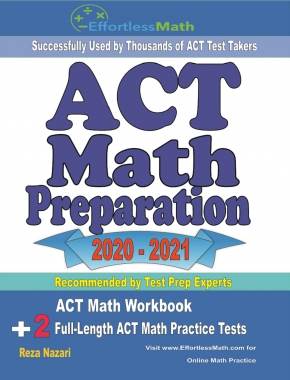






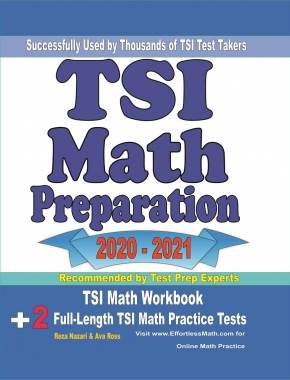
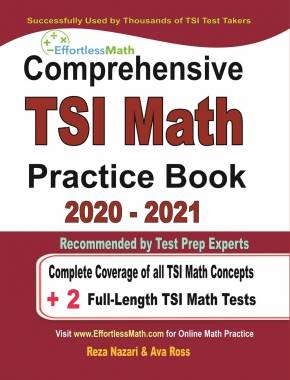
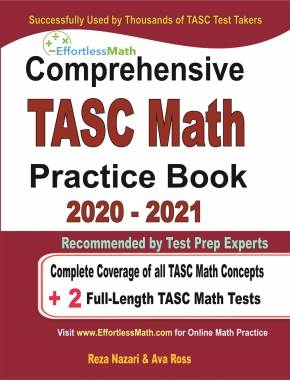
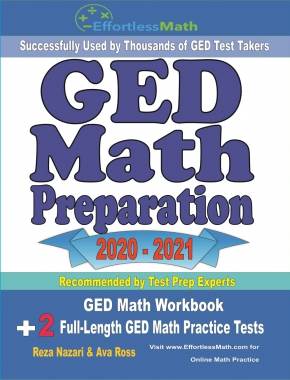












What people say about "7 Easy Tips to Make Math Less Complicated - Effortless Math: We Help Students Learn to LOVE Mathematics"?
No one replied yet.